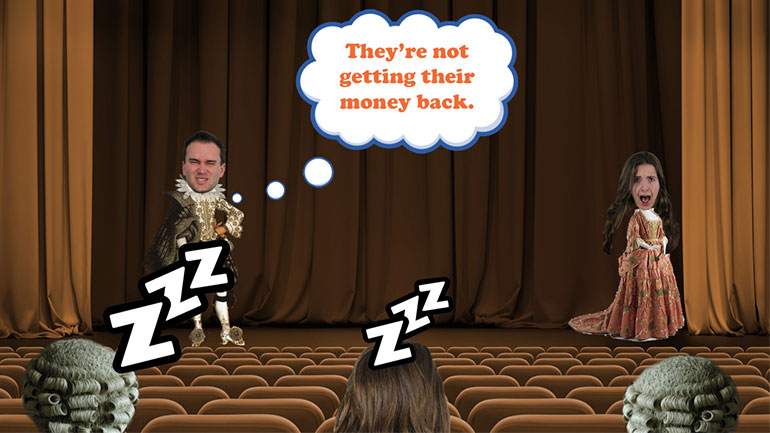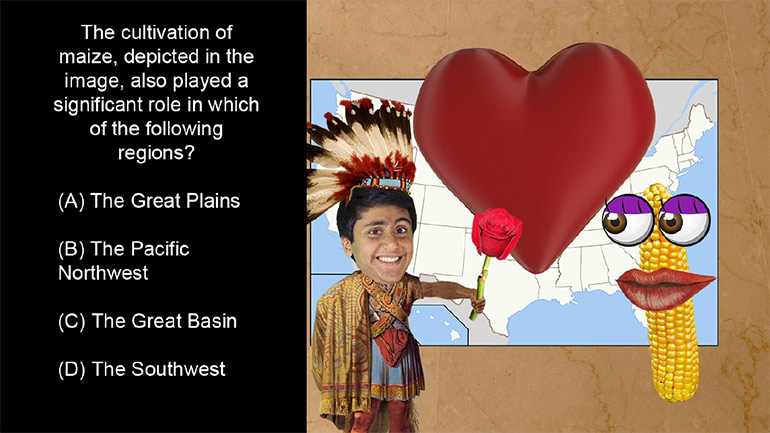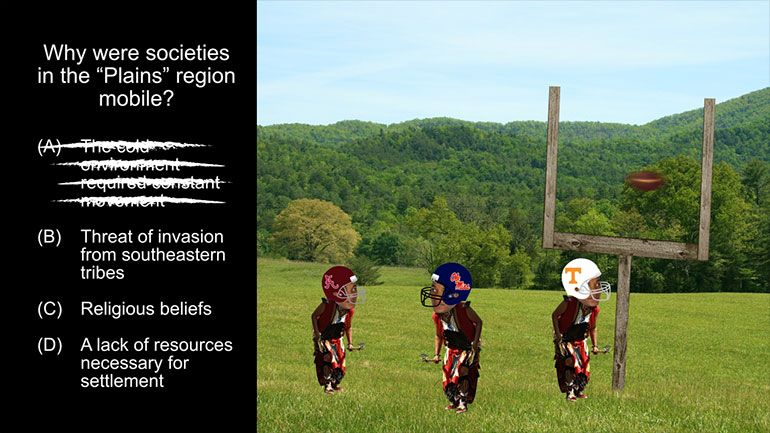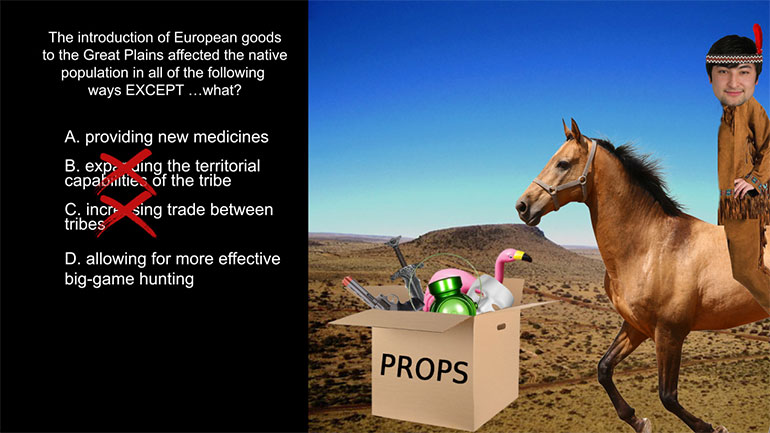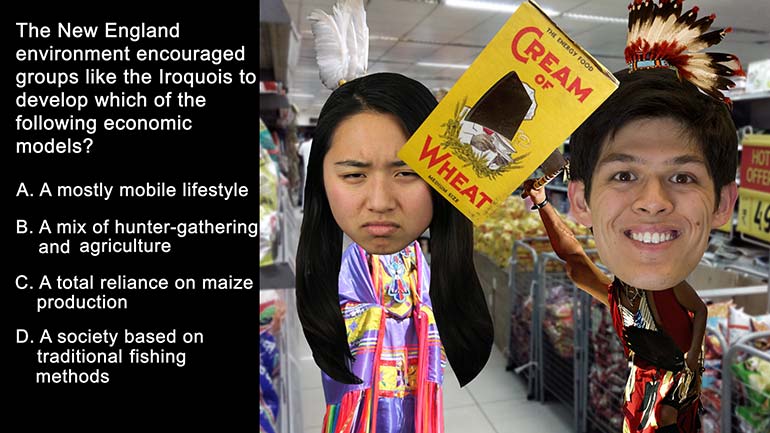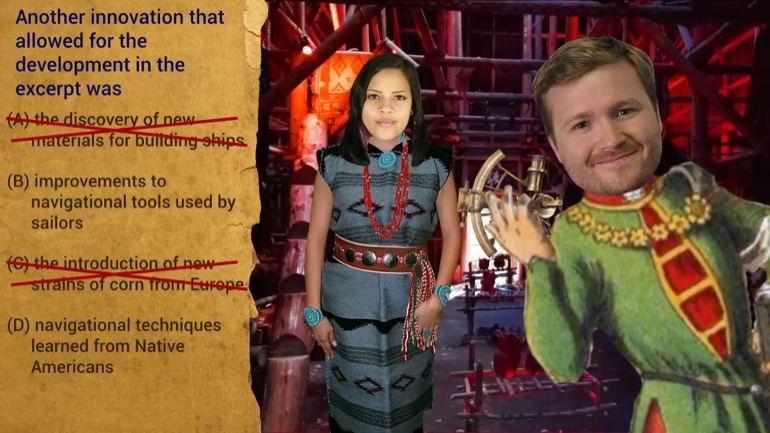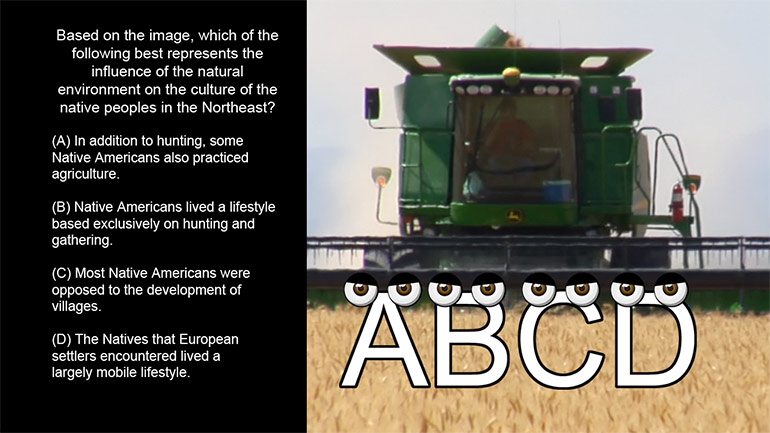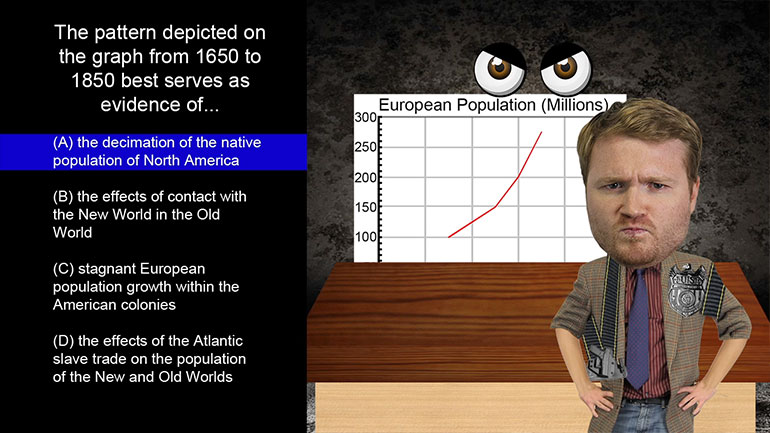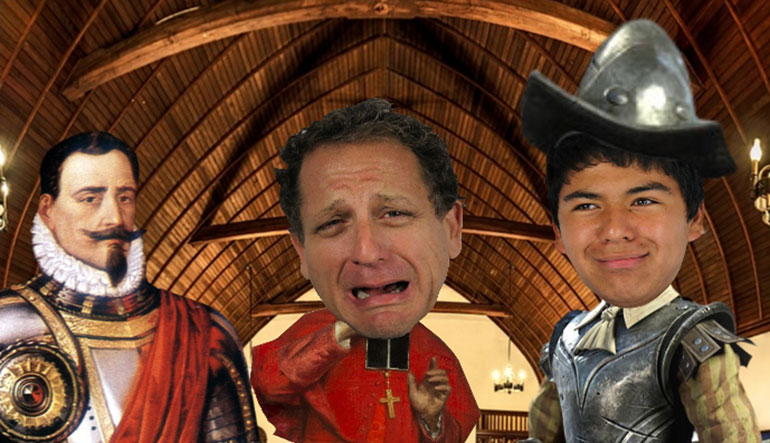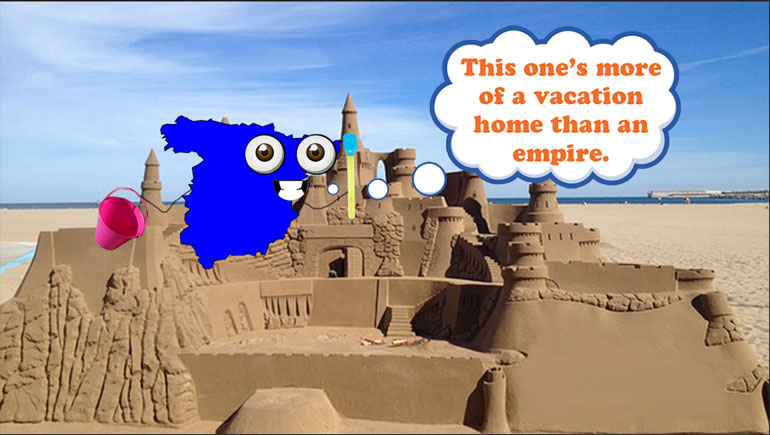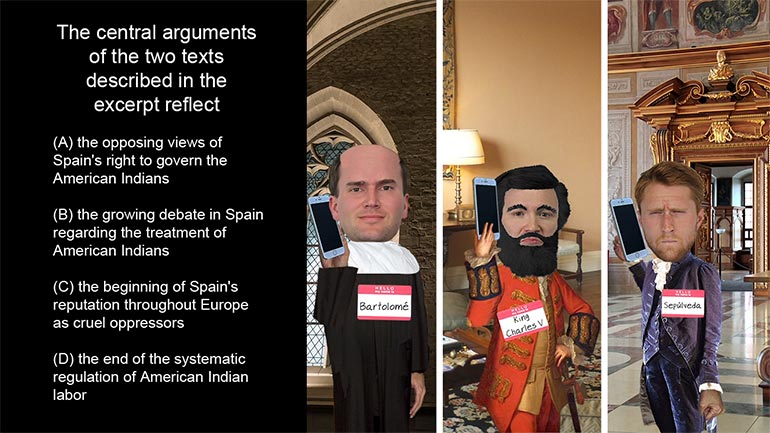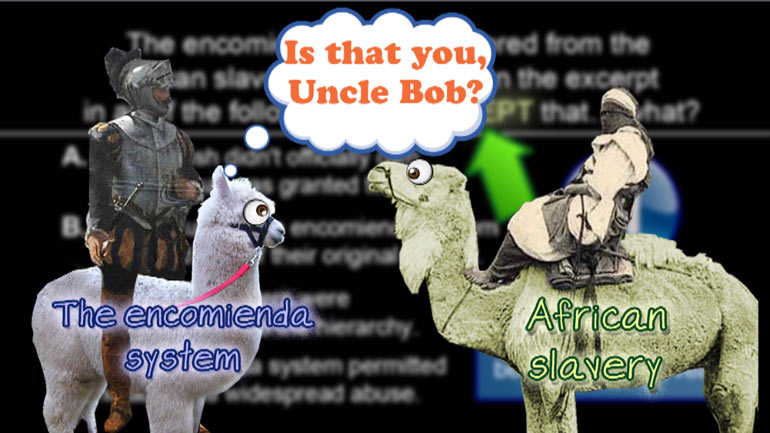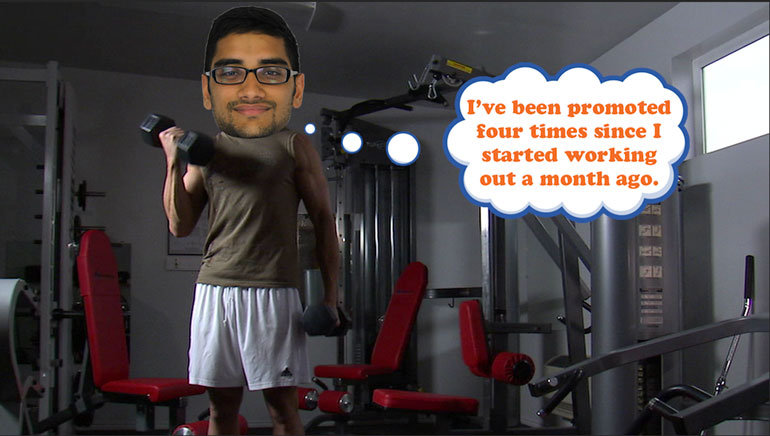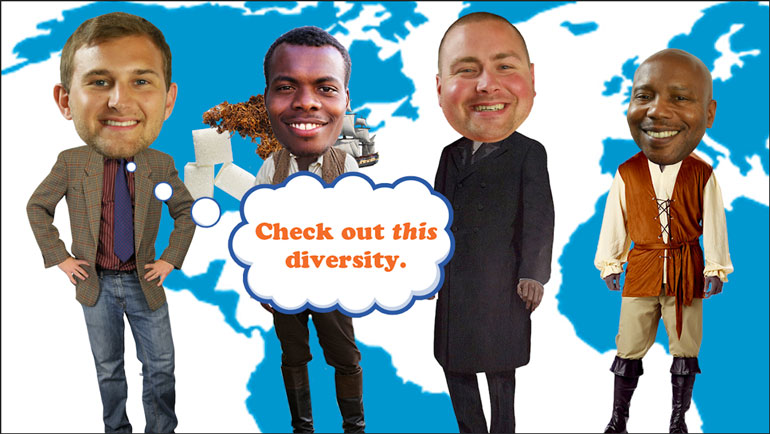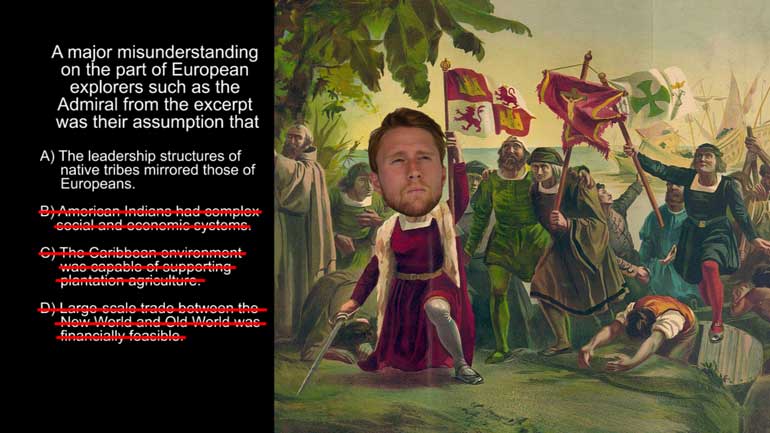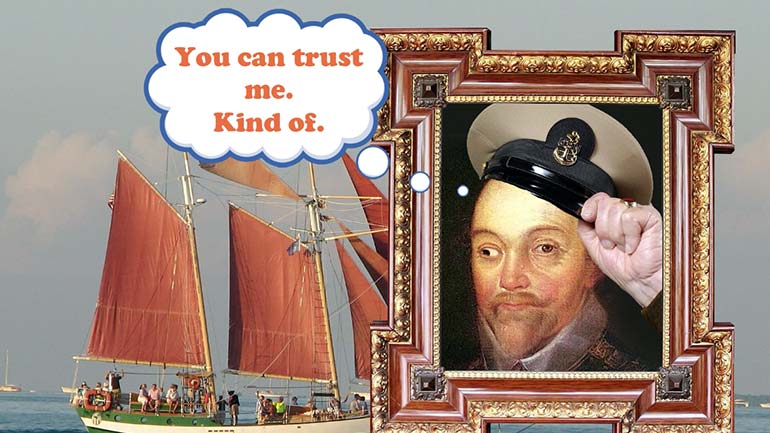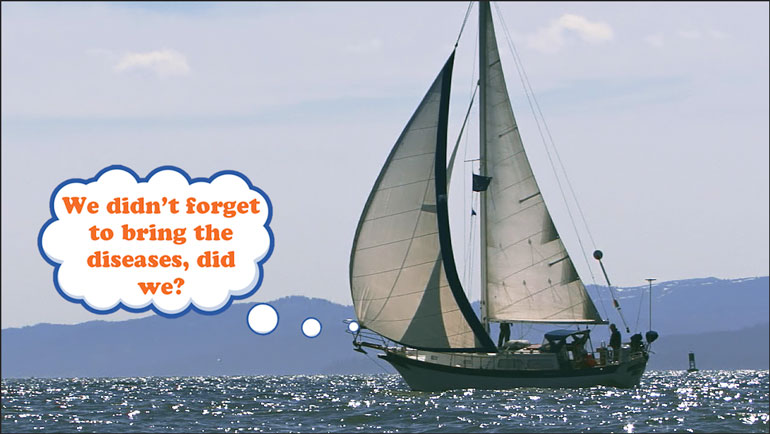ShmoopTube
Where Monty Python meets your 10th grade teacher.
Search Thousands of Shmoop Videos
Period 1: 1491 to 1607 Videos 27 videos
AP U.S. History Exam 2.6. Prior to the passage of the Navigation Acts, how did the Atlantic exchange impact the colonies?
AP U.S. History: Period 1: 1491–1607 Drill 1, Problem 3. As a result of the increased contact between the New World and the Old World, Europe's p...
AP U.S. History 4.4 Period 1: 1491-1607. Which of the following would have contributed most directly to the population growth in Europe after 1650?
AP U.S. History Exam 1.3 173 Views
Share It!
Description:
AP U.S. History Exam 1.3. The excerpt reflects a common practice of the time in which...what?
Transcript
- 00:00
[ musical flourish ]
- 00:02
And here's your Shmoop du jour, brought to you by messengers.
- 00:06
We'd say don't shoot them, but... why would you?
- 00:09
They brought you Shmoop du jour.
- 00:10
Yeah. That was nice.
Full Transcript
- 00:12
Okay, here's the excerpt.
- 00:13
[ mumbles ]
- 00:17
[ mumbling continues ]
- 00:21
All right, and the question:
- 00:23
The excerpt reflects a common practice of the time in which... what?
- 00:28
And here are your potential answers.
- 00:30
[ mumbles ]
- 00:35
Okay.
- 00:36
Take a look at that first sentence from the excerpt again.
- 00:39
"For this reason he had sent us
- 00:41
hither to put an end to so much misery."
- 00:45
Sounds like Castillo didn't think too highly of those
- 00:48
frenemies across the sea.
- 00:50
So does the excerpt reflect a common practice of the time in which A -
- 00:54
monarchs included clergy among the early explorers of new lands?
- 00:59
Hmm. Well the the end of the excerpt makes it seem like
- 01:02
these explorers were waiting for people who could
- 01:05
explain these things more fully to them,
- 01:08
"things" being the ins and outs of Christianity.
- 01:11
[ chuckles ] So that spirits away A.
- 01:13
Does the excerpt support the idea that B -
- 01:16
Europeans learned to embrace the customs of other cultures?
- 01:19
Anything but, right?
- 01:21
On top of wanting to put an end to so much misery,
- 01:23
Europeans paid little attention to the ins and outs of Native culture.
- 01:27
So that wipes out B and C.
- 01:29
Which means that the excerpt reflects a common practice of the time in which
- 01:32
D - Native Americans were seen as uncivilized
- 01:35
when held to European standards.
- 01:37
Back then, most Europeans believed that Native Americans
- 01:40
were uncivilized and needed to be "saved,"
- 01:43
which the Spaniards believed was possible
- 01:46
through Jesus Christ.
- 01:47
So D is the correct answer.
- 01:49
Of course, much of that saving fell a little bit short
- 01:52
what with widespread disease and warfare
- 01:55
eradicating the population.
- 01:56
Sounds more like an uncivilizing affect.
- 02:00
[ crash ]
Related Videos
Ever heard of a "living document"? They eat and breathe just like the rest of us! They even walk around on their own two legs. Okay, fine—maybe t...
If the Puritans had gotten their way, religion would play a much larger role in lawmaking these days. Want to know more? Watch the video for all th...
What happened between the creation of the Articles of Confederation and the ratification of the current U.S. Constitution? This video analyzes the...
The Modernists thought the world had a lot of problems, and they were intent on fixing them—or at least talking about fixing them. Unfortunately,...
This video explains Federalism and the quest for a fair balance between state and national power. It covers the progression and compromises of Fede...

